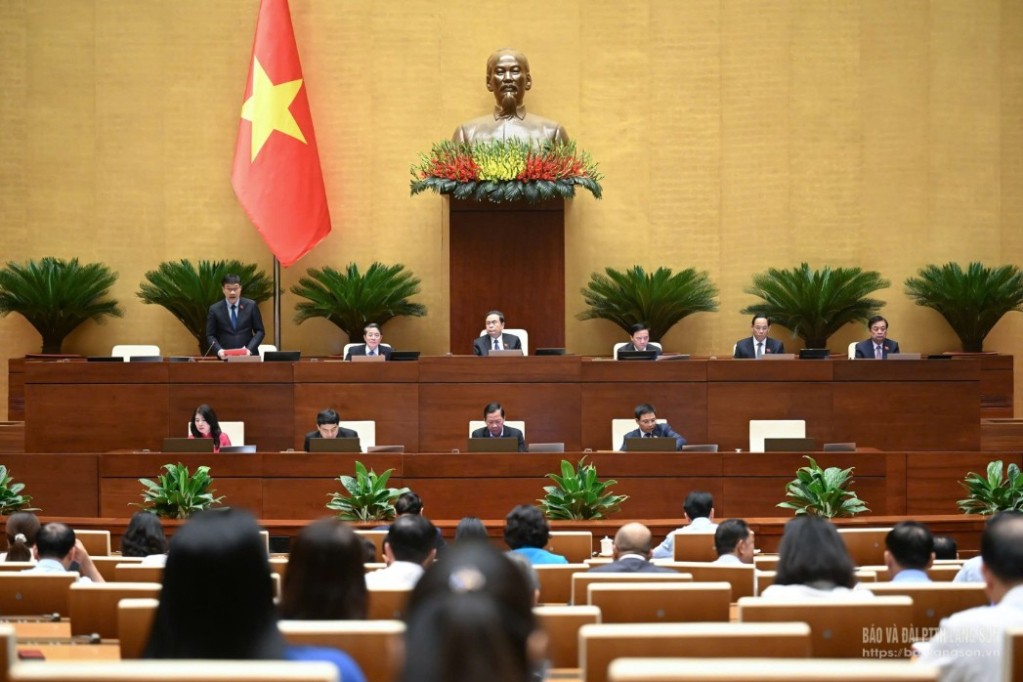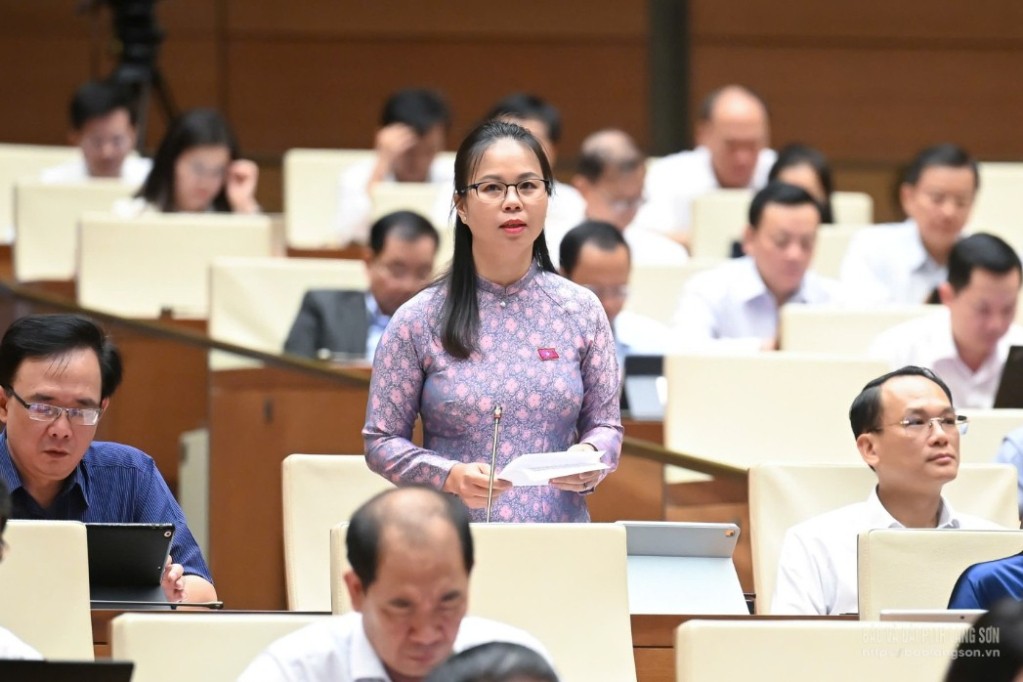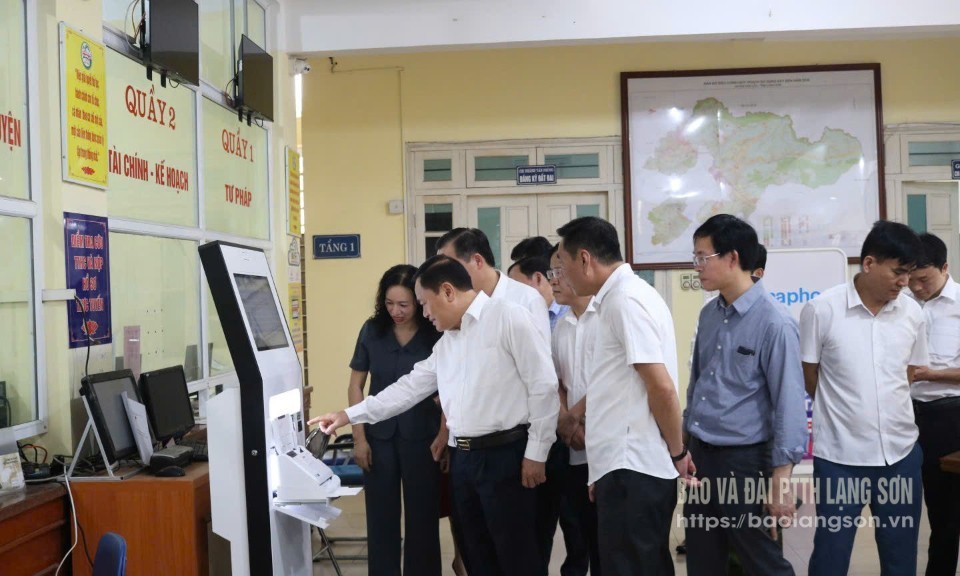National Assembly Deputies of the province participate in the socio economic development debate
On the afternoon of June 17, continuing the 9th session of the 15th National Assembly, a plenary meeting was held in the hall to review and discuss several key issues.

Specifically, the National Assembly discussed about a supplementary assessment of the results achieved under the 2024 socio‑economic development plan and State budget; progress in implementing the 2025 socio‑economic development plan and State budget in the early months of the year; approval of the 2023 State budget final accounts; continued application of special mechanisms and policies approved by the National Assembly for certain localities following administrative reorganization and expansion, in line with the Party and State’s directives; 2024 implementation of thrift and anti‑waste measures; and the outcome of the national gender equality objectives in 2024.

During her floor speech, Deputy Chu Thi Hong Thai expressed that, under strong direction from the Party and State, all levels and sectors have made determined efforts to carry out socio‑economic development tasks, ensure social welfare, and stabilize people’s lives. A notable achievement is the implementation of resolutions on the reorganization of district‑ and commune‑level administrative units—a major, strategic, and correct policy aimed at streamlining local government systems to operate more effectively and serve citizens better.
However, with the newly compiled commune‑level administrative units set to commence operations on July 1, 2025, she pointed out emerging challenges that require urgent and comprehensive attention. These include the pressure placed on commune‑level cadres and civil servants; difficulties in community engagement and local governance; limited digital infrastructure and risks of disruption in public service delivery; and inadequate facilities following the mergers.
In response, the Deputy urged the Government to direct relevant ministries and agencies to conduct a comprehensive impact assessment after the reorganization; propose revisions and supplements to legal regulations to ensure the new two‑tier local government operates effectively; empower localities to establish support mechanisms, encourage multitasking cadres, and allocate resources appropriately to maintain stability and performance.
She also called for focused investment in digital infrastructure and fixed and mobile broadband internet in mountainous and remote communes to ensure continuous and efficient operation of the National Public Service Portal; for a roadmap of funding to build infrastructure and upgrade facilities for the newly established administrative units; and the issuance of unified guidelines on managing and utilizing surplus public facilities.

Deputy Pham Trong Nghia praised Vietnam’s socio‑economic achievements in 2024 and the early months of 2025, especially highlighting the Party’s identification of the “Four Pillars” and the relevant social welfare policies as providing a theoretical framework for the country’s in‑depth reforms across sectors.
He proposed that the Government pay attention to three main issues: enhancing the intrinsic capacity of domestic enterprises and business households; diversifying markets and supply chains; and protecting and developing human resources.
Specifically, he recommended that domestic firms be given priority in executing public investment projects, particularly those of a large scale in infrastructure; that a support program be implemented to help Vietnamese businesses maximize the benefits of free trade agreements that Vietnam has signed and is implementing; that trade promotion be intensified and prioritized; that a national strategy be developed to strengthen domestic supply chains; and that a vigorous campaign such as “Vietnamese people, Vietnamese businesses use Vietnamese goods,” building upon the existing “Vietnamese people prioritizing Vietnamese goods” movement, be promoted.
Furthermore, he stressed the necessity of issuing a national strategy or targeted program for human resource development and vocational skills enhancement, to make human capital a strategic breakthrough in the forthcoming period; and that strict legal and criminal accountability be enforced against acts such as the manufacture of counterfeit goods, fraud, trade deception, and corruption.
Following the deputies’ contributions, members of the Government responded by clarifying a number of issues raised by the National Assembly deputies.
 Loading
Loading  Tiếng Việt
Tiếng Việt English
English 中文
中文


